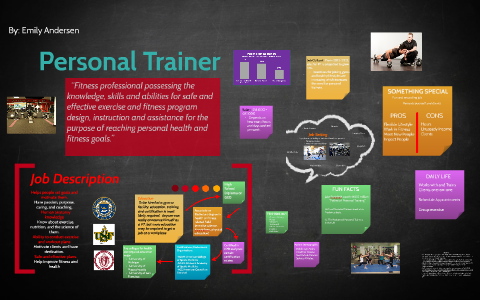
Tampa, FL personal trainer salaries are higher than in many other cities. Personal trainers in Tampa are highly sought after, so you will be able to make more. You can also earn more if you are certified and work in an elite setting. High-end fitness centers and training centers for performance-clients tend to offer better pay. These are only a few factors that will impact your earnings.
Living costs
If you're considering moving to Tampa, Florida, you need to know the cost of living in the area. The cost of living in Tampa is 14% more than the average US city. To estimate how much you will spend each month, you can use the cost of living calculator. The calculator will breakdown your expenses by type, including housing and transportation.
Relocating can be expensive. However, you should also consider your health. Before you move to another area, research the medical costs. Medical insurance can help you keep your costs down. It will also give you emergency access to medical care.

Personal trainers' salaries
The salary for a personal trainer varies, and it depends on several factors. Personal trainers may work with professional athletes as well as non-athletes and may also design customized training programs. Personal trainers need to ensure safety when using equipment and build relationships with clients. They also have to evaluate client's fitness levels.
The salary of personal trainers can vary in Tampa, FL. The average salary for a Tampa personal trainer is $77,421. This salary is substantially lower than the national median of $88,975 as well as more than three-times less than the combined average salary for Personal Trainees in other metro areas.
Earning potential
The earnings potential for personal trainers in Tampa, Florida is significantly higher than in other cities. However, to obtain a high salary, it's essential to have a certification and to work in a high-demand environment. A personal trainer at a high-end fitness center could make over $50,000 per year. Clientele include prominent athletes.
The city of Tampa can be found on the east and north shores of Old Tampa Bay. It is the largest city in the Tampa Bay area, and the county seat of Hillsborough County. The city is home to approximately three hundred thousand people, making it the third-largest city in the state and the 52nd-largest city in the United States. In the nineteenth century, Tampa served as an important military center.

Taxes
There are many options to reduce your tax liability. You also have the option to write-off taxes for individuals, if they are medically necessary. It can be confusing to grasp the complexities of these tax benefits. It is important to take control of your finances so that you know what tax deductions are available.
The cost of living in Tampa, Florida is 14% higher than the national average. Tampa's living costs include food, transportation and health care. You as a personal coach should ensure you are aware of your expenses and what you can bring home before you file your taxes.
FAQ
What does Nutrition do for Your Body?
Your body's ability to function properly is aided by nutrition. A balanced diet that includes plenty of fruits, vegetables, lean protein, whole grains, healthy fats, and lean proteins is the best way to ensure you get adequate nutrition.
Exercise can I help me lose weight
Yes. Regular exercise is a great way to lose weight. Exercising can increase your metabolism so that you can burn calories even when you're not working out.
What is the value of good nutrition?
For our well-being and health, nutrition is essential. A healthy diet includes fruits, vegetables, whole grains, lean protein, and dairy. A healthy diet will help you stay active and fit, which in turn leads to better overall health.
Is it necessary to eat before exercising?
No. It's not necessary to eat anything before you work out. If you feel hungry after working out, it is a good idea to have a light snack like yogurt or fruit.
Is it safe for me to exercise in cold temperatures?
If possible, go outside. However, the temperature of the air is not the only thing that can determine whether you are safe to exercise outdoors. Also, visibility, wind speed and humidity all play a significant role. Wear layers of clothing to keep you dry from rain and windchill when you exercise outside in inclement conditions.
Why is it important to get enough sleeping?
For a healthy lifestyle, sleep is vital. Sleep allows your body to repair itself and recover from daily stresses. Your ability to function optimally during the day is dependent on how much sleep you get each night.
Statistics
- An estimated 110,000 deaths per year could be prevented (cdc.gov)
- Adolescent girls were less active than adolescent boys, with 85% vs. 78% not meeting WHO recommendations of at least 60 minutes of moderate to vigorous intensity physical activity per day. (who.int)
- In high-income countries, 26% of men and 35% of women were insufficiently physically active, as compared to 12% of men and 24% of women in low-income countries. (who.int)
- In 2018, the World Health Assembly agreed on a global target to reduce physical inactivity by 15% by 2030 and align with the Sustainable Development Goals. (who.int)
External Links
How To
How to Lose Belly Fats More Fast
When trying to lose weight, belly fat is often viewed as a problem. When you stop and think about it, Belly Fat can actually be a blessing. Your organs will be protected by the amount of belly fat. Let's look at how to rapidly lose belly fat.
Stress and inactivity are two of the major factors that cause us to store body fat. Because stress stimulates the release of cortisol hormone, it makes us hungry all the time. Cortisol increases insulin levels in our blood. The excess calories stored as fat are then stored by insulin. Insufficient sleep can lead to an increase in appetite and adrenaline release. These extra calories are broken down through exercise.
There are many different ways to reduce bellyfat. You can choose to try any of these options, depending on your budget. Here are some quick tips to get rid of belly weight.
-
Reduce your food intake. Instead of eating three large meals per day, try to eat smaller meals. This will result in fewer calories.
-
Make sure you drink plenty of water. Water flushes out toxins from your body and keeps you hydrated. Drinking water prior to every meal will ensure that you are satisfied for longer periods of time and won't eat too much.
-
Avoid unhealthy snacks. If you're looking for quick fixes, snack foods like chips, cookies, candies, etc. This might be tempting. These sweet treats can be tempting, but they are high in empty calories and sugar. Choose healthy options like whole grains, fruits, vegetables, nuts, seeds and nuts.
-
Strength training should be performed at least 3 times per week. Strength training helps build muscle mass, which means that you can burn more calories even when you are resting. It strengthens bones and muscles, ligaments, muscles, tendons, heart, lungs, as well as joints.
-
Walking or stretching is a good habit to do regularly. Stretching can improve flexibility, mobility, and reduce back pain. Walking for 30 minutes is a great way to burn calories.
-
Reduce alcohol intake. Reduce alcohol intake. Alcohol is a waste of calories and has no nutritional value.
-
Slowly lose weight. First, determine your current weight. Calculate your ideal weight by adding approximately 5% to 10% of the total weight. Once you have reached your target weight, begin decreasing your daily calories intake by 500-1 000 calories until you reach your goal.
-
Avoid processed foods. These foods are high on sugar, salt, and additives. These processed foods are often convenient, but they lack enough nutrients for good health.
-
Don't skip breakfast! Breakfast is good for your concentration, memory, and energy. You should have protein (such as eggs) and fiber (such as oats) for breakfast.
-
Have regular bowel movements. Constipation and irregularity can cause gas and bloating. Drink plenty of water to prevent gas and fiber ingestion.